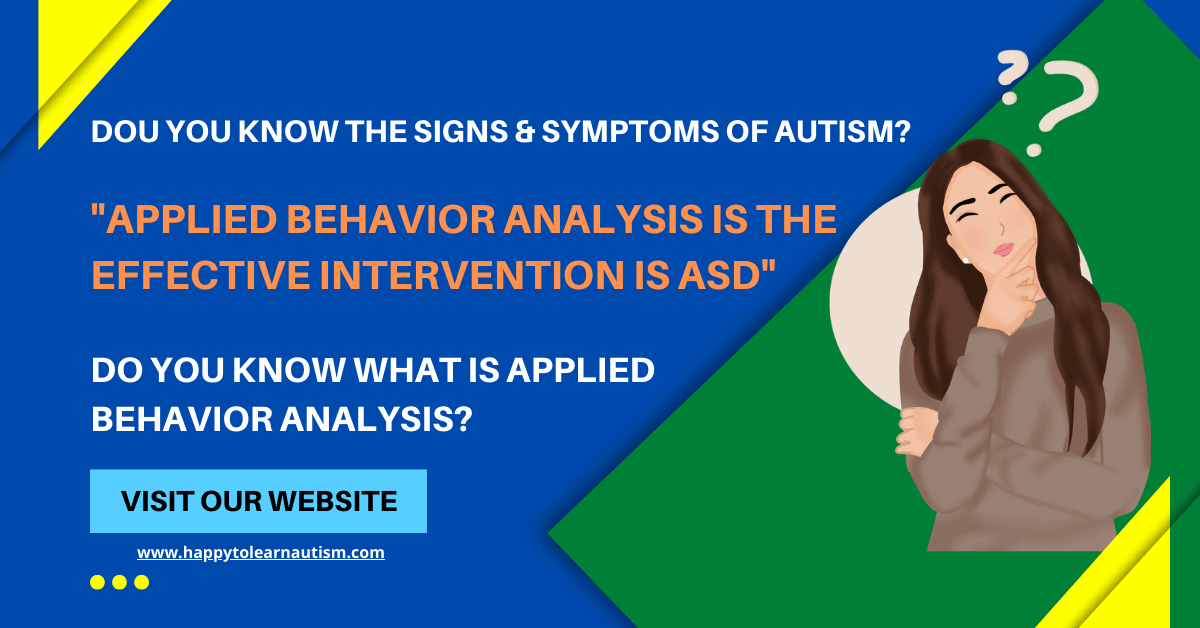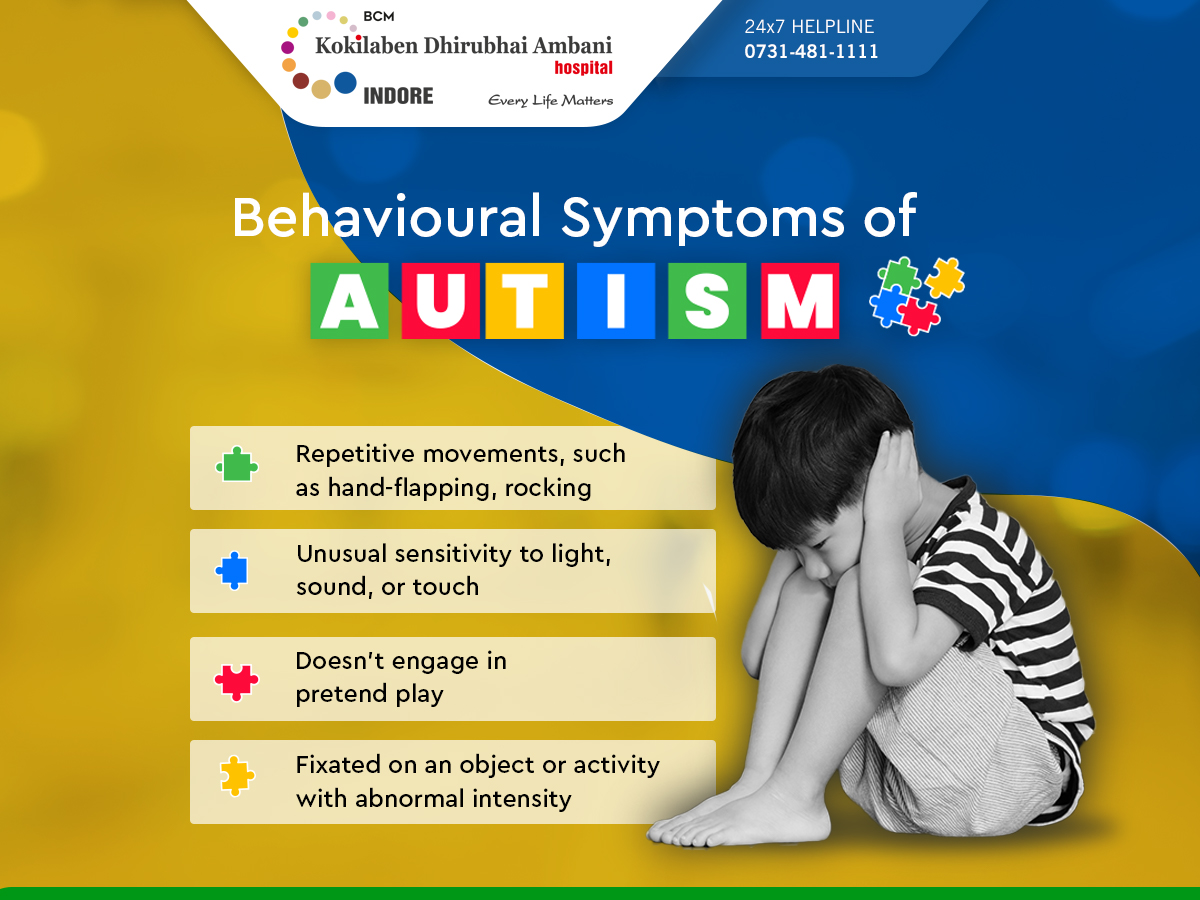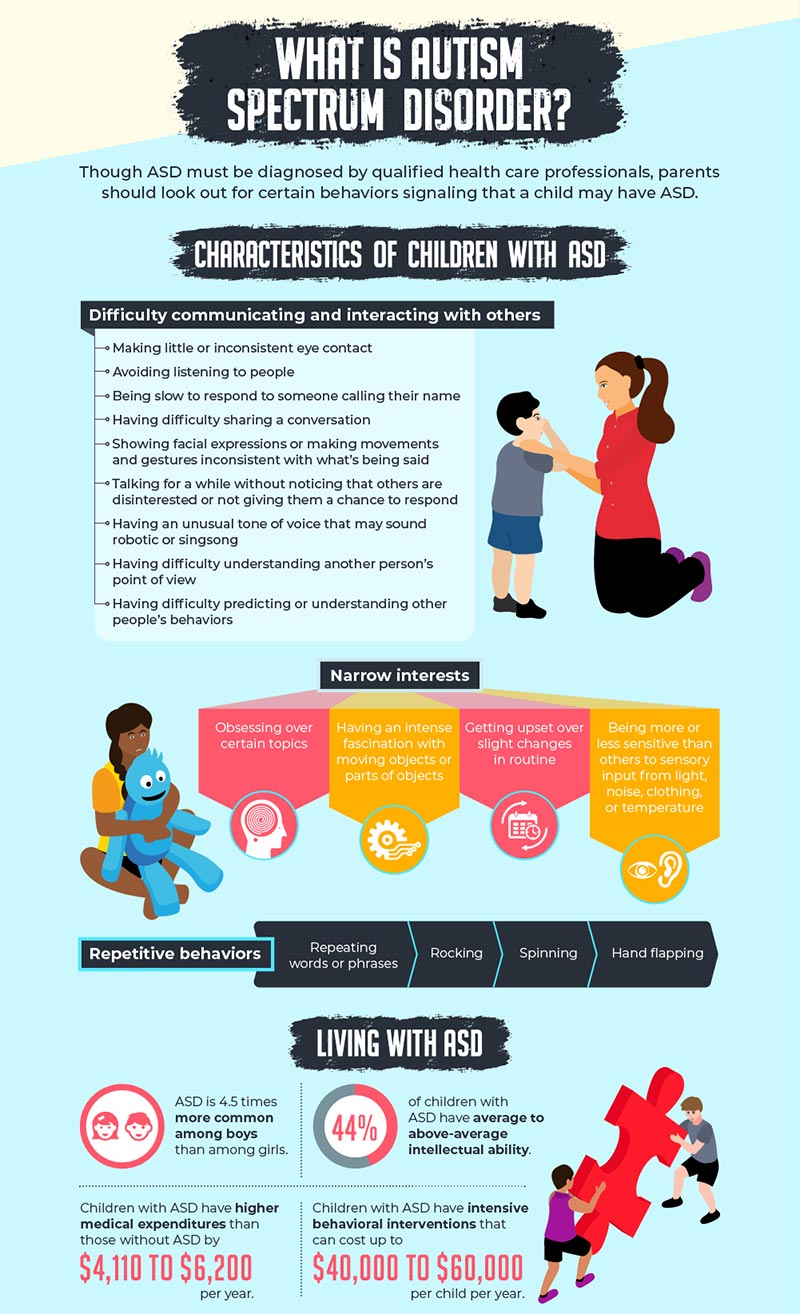Talking about ASD with siblings—tips from an Aba Therapist
Talking about ASD with siblings—tips from an Aba Therapist
Blog Article
Recognizing the Impact of Behavioral Autism on Day-to-day Live and Social Communications
You may not realize just how deeply behavior autism affects day-to-day life and social communications. People on the range usually navigate a world filled up with interaction difficulties and sensory overload. These difficulties can lead to irritation and isolation, influencing their relationships and total wellness.
Defining Behavior Autism and Its Qualities
Behavioral autism, usually referred to as autism spectrum disorder (ASD), includes a variety of conditions characterized by challenges in social communication, interaction, and repeated behaviors. You might observe that individuals with ASD usually have a hard time to translate social signs, which can bring about misunderstandings in discussions. They might find it hard to establish eye contact or take part in small talk, making social scenarios feel frustrating.
Communication problems can show up in numerous ways, from delayed speech growth to a preference for making use of fewer words. By acknowledging these qualities, you can foster an environment that advertises approval and urges reliable interaction, assisting people with autism grow in their day-to-day communications.
The Range of Autism: Understanding Variability in Behavior
Autism spectrum condition (ASD) isn't a one-size-fits-all diagnosis; it varies extensively among people. You may notice that some people with ASD show light signs, while others might face extra significant difficulties. This irregularity can show up in habits, rate of interests, and sensory level of sensitivities. You might experience people that are very verbal and engage quickly in discussions, while others may favor singular tasks or communicate non-verbally.
Moreover, the method individuals with ASD reply to sensory input can vary greatly; some may be bewildered by loud noises or brilliant lights, whereas others thrive in stimulating settings. The spectrum additionally consists of differences in social communications; some people may have a hard time to analyze social cues, while others browse social setups with loved one ease. Understanding this irregularity is necessary, as it assists you appreciate each individual's unique experience and tailor assistance to their certain needs, promoting a more inclusive environment for everybody.
Interaction Difficulties Encountered by Individuals With Autism
When you interact with people on the autism range, you may observe their one-of-a-kind interaction difficulties. They frequently face problems with both nonverbal and spoken hints, which can influence their social communications. Understanding these obstacles is crucial for cultivating much better links and support.

Verbal Communication Difficulties
Numerous individuals on the autism range experience spoken communication difficulties that can significantly influence their day-to-day interactions. You could locate it challenging to reveal your thoughts, sensations, or needs plainly. This can bring about frustration for both you and those around you, as misconceptions happen. You might deal with initiating conversations, maintaining a subject, or comprehending subtleties in speech. Often, you could favor making use of easy language or repetitive expressions, which can restrict your capability to take part in deeper discussions. Your pace, volume, or tone may not line up with social assumptions, causing others to misunderstand your intentions. Acknowledging these challenges can help you and your assistance network create techniques to enhance interaction and promote better links with others in your day-to-day live.
Nonverbal Communication Barriers
Verbal interaction isn't the only challenge individuals on the autism spectrum face; nonverbal interaction obstacles can be just as considerable. These difficulties can lead to misconceptions or misconceptions of social cues, making communications feel frustrating or complicated. By resolving nonverbal communication, you can discover approaches to enhance your social experiences and boost your general top quality of life.
Social Communication Impacts
Social communications can usually feel overwhelming due to the one-of-a-kind interaction obstacles dealt with by individuals with autism. Recognizing these obstacles can help you find techniques to boost interaction, such as exercising social abilities in secure setups or making use of visual aids. Recognizing your requirements permits you to navigate social communications with greater self-confidence and simplicity.
Social Communication and Relationship Structure in Autism
While structure relationships can be challenging for people with autism, comprehending their distinct perspectives and interaction styles can foster meaningful links. You may observe that lots of people on the range prefer straight interaction and might struggle with social hints or small talk. By being simple in your interactions, you can assist create an environment where they really feel comfortable.
Make the effort to observe and listen just how they reveal themselves. This insight can direct you in guiding conversations much more successfully. Participating in shared interests can also function as a bridge to deeper links. Whether it's a pastime, a favorite show, or a mutual enthusiasm, these usual threads can open up doors to friendship.
Life Routine: Browsing Challenges and Strategies
Steering day-to-day life regimens can be especially testing for people with autism, particularly when unforeseen changes take place. To browse these challenges, think about implementing visual schedules or lists.
Developing a routine that includes sensory breaks can additionally be beneficial. This helps produce an understanding environment.
Last but not least, practice mindfulness techniques to manage anxiety and anxiousness. Simple breathing exercises or basing methods can make a considerable difference. By including these techniques, you can enhance your everyday routine and decrease disruptions, making life feel a lot more official source workable.
Staminas and Capabilities of Individuals on the Autism Range
Understanding daily life regimens is just one facet of the autism experience. Several people on the autism range possess remarkable strengths and abilities that establish them apart. You may discover that your interest to information is outstanding, enabling you to master tasks that need accuracy and emphasis. Your capability to assume outside package can cause ingenious solutions in different scenarios.
Moreover, your memory skills usually radiate, especially in areas of interest. Autism Therapist. This knack for maintaining information can make you a valuable resource in fields like art, scientific research, or modern technology. You may additionally exhibit solid visual thinking, enabling you to imagine intricate concepts and resolve issues creatively
Additionally, your special viewpoint on the globe can foster empathy and understanding in others, enhancing social interactions. Accepting these strengths not only boosts your confidence however additionally helps others appreciate the varied abilities you Aba Therapist bring to the table.
Creating Inclusive Environments for People With Autism
Producing comprehensive settings for people with autism starts with developing sensory-friendly areas that satisfy their distinct needs. You can likewise cultivate chances for social communication, helping to develop relationships and connections. By making these changes, you'll contribute to a more welcoming atmosphere for everybody.
Creating Sensory-Friendly Spaces
While designing sensory-friendly rooms, it's essential to review the unique needs of people with autism. Beginning by choosing relaxing shades and soft illumination to create a soothing setting. Integrate silent zones where people can retreat and recharge when overwhelmed. You'll want to lessen loud sounds and disturbances, using soundproof materials or white sound machines to assist keep tranquility. Take into consideration responsive aspects like soft fabrics or fidget-friendly objects that can give comfort. Determine that spaces are flexible, enabling very easy rearrangement to suit various activities. Finally, consist of visual timetables or clear signs to assist individuals navigate the room confidently. By attentively integrating these components, you can develop an inviting ambience that supports sensory needs and promotes general health.
Promoting Social Interaction Opportunities
Designing sensory-friendly areas not only addresses private comfort however also establishes the phase for significant social interactions amongst individuals with autism. Motivate peer mentoring, matching individuals with autism with helpful peers that can assist them with social circumstances. By implementing these methods, you can enhance social chances, aiding see this page people with autism develop friendships and strengthen their social skills in a risk-free, inviting setting.

Often Asked Inquiries
How Can Buddies Assistance Someone With Behavioral Autism?
You can sustain a pal with behavior autism by being individual, listening actively, and respecting their borders. Involve in activities they delight in, communicate freely, and develop a comfy atmosphere where they really feel valued and recognized.
What Resources Are Available for Moms And Dads of Children With Autism?
You can check out numerous sources for parents of children with autism, including assistance teams, educational web sites, and local social work. Attaching with various other moms and dads can additionally supply beneficial understandings and shared experiences to aid browse difficulties.
Can Behavioral Autism Adjustment Gradually?

Yes, behavior autism can transform gradually. You could see changes in communication, social skills, and actions as your youngster expands. Early treatment and support often play important functions in these developing changes.
Exactly How Do Sensory Level Of Sensitivities Affect Every Day Life?
Sensory sensitivities can make everyday experiences overwhelming. You might fight with loud sounds or intense lights, leading to tension or avoidance. Finding atmospheres that suit your requirements can substantially improve your convenience and general day-to-day life.
What Are Common Misconceptions Regarding Behavioral Autism?
You might believe behavior autism just influences interaction skills, however it's more complicated. Many assume people lack compassion or knowledge, which isn't true. Comprehending these misconceptions assists foster acceptance and assistance for those on the range.
Behavior autism, frequently referred to as autism range condition (ASD), encompasses a variety of conditions identified by difficulties in social communication, communication, and recurring behaviors.Social interactions can typically feel frustrating due to the one-of-a-kind communication difficulties faced by individuals with autism.Creating sensory-friendly spaces not just addresses private convenience but also establishes the phase for purposeful social communications amongst individuals with autism. Motivate peer mentoring, combining individuals with autism with supportive peers that can assist them through social circumstances. By carrying out these methods, you can boost social opportunities, assisting people with autism build relationships and reinforce their social abilities in a risk-free, welcoming setting.
Report this page